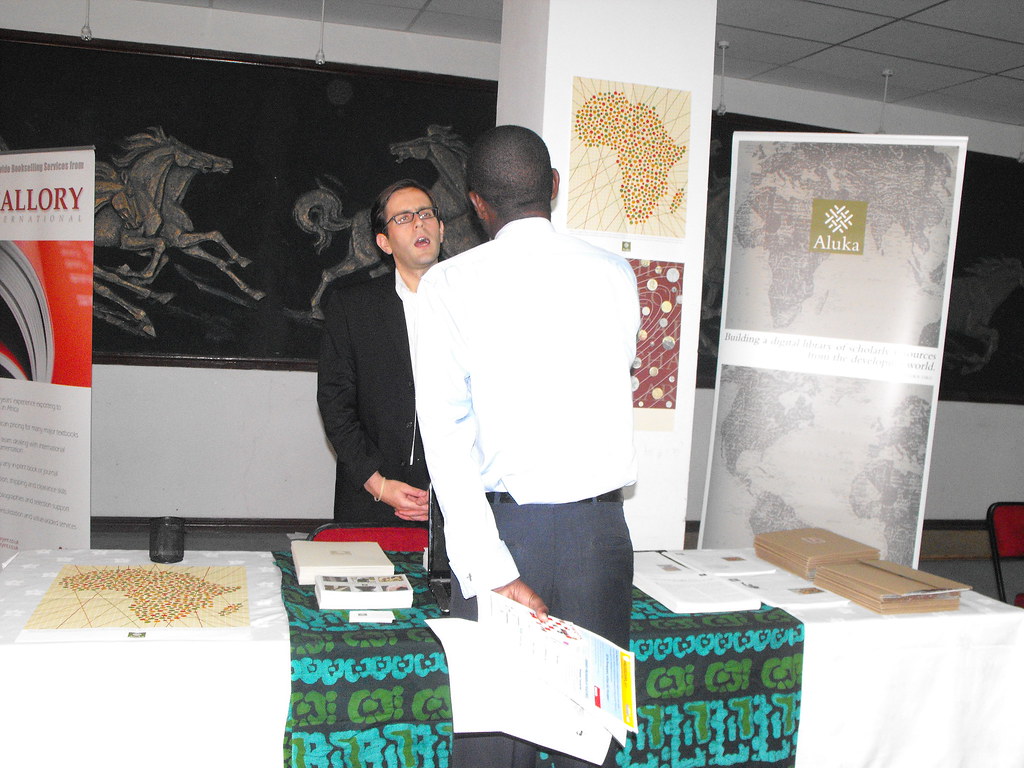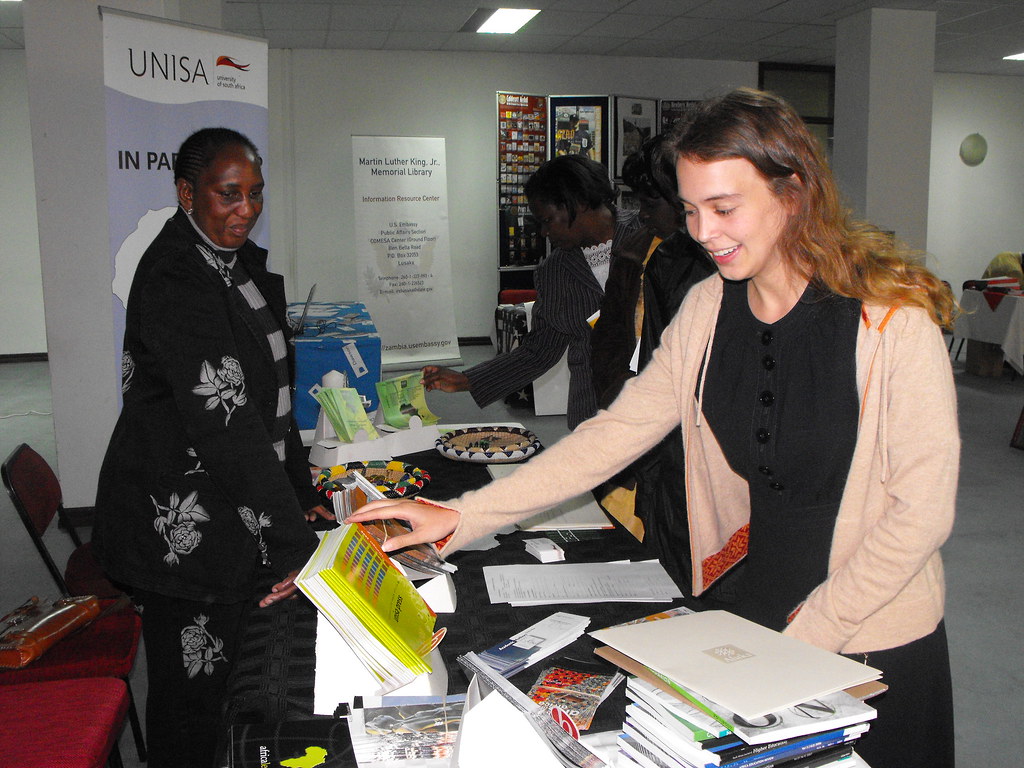Near the lobby of the conference center was a room with various booths: publishers, non-profit library organizations, etc. I talked to the EBSCO representative from their South Africa division and browsed the materials at the IFLA table next to Aluka. Aluka is a non-profit that digitizes academic materials including cultural objects for and about Africa. Now affiliated with JSTOR, it should be gaining momentum and covering more ground. Aluka provides free access for many African universities and institutions and makes these resources available to African scholars, anthropologists, historians among others. I have a background and interest in African art and culture, so it was serendipitous and potentially very useful.
During the tea break, I met a law librarian about my age from Zimbabwe who assured me that I could return to Harare. He was very nice, and I refrained from jokes about laws and Zimbabwe. He offered to arrange my trip (yes, hotels are still operating.) He told me it was completely safe as long as I didn't ask questions about politics in public and risk being labeled a journalist. I believe I'd be relatively safe as a white person in a city since the violence was mostly targeted at MDC supporters in rural areas, but there wouldn't be much to see there. I'm sure most people I knew are in South Africa, and I'm sure most places are empty. I just appreciated his optimism. Cool librarians are everywhere.
I had the opportunity to attend presentations and lectures, as well. I chose ICT in Information Science and Service because I did a great deal of research on ICTs and Zambian e-government resources for a class last spring. The presentations generally addressed strategies and initiatives to connect rural communities with technology. Similar topics appear again and again in library science, but the Gender and Marginalized Groups session's lectures were new to me and I learned a lot. Prof. J.R. Ikoja-Odongo from Makerere University in Kampala, Uganda discussed the relevance of women farmers' information networks as viable contributions to Millennium Development Goals (MDGs). Unique to developing countries, I probably wouldn't have had exposure to this issue unless I was researching an adjoining topic. I wasn't expecting such a focus on rural communities although they comprise such a large percentage of the population in Africa. I guess I'm accustomed to a focus on urban areas, but it's hard to say whether it's a result of living in New York and working for an urban public library or Americans tend to leave rural areas out of the equation when it comes to addressing marginalized groups. The final presentation in the Gender and Marginalized Groups session was given by Naomy Mtanga, Prof. of Library Science at the University of Zambia, about Lubuto Library Project's contribution to MDGs for vulnerable children. There were tons of questions following her presentation, which I hope reflects the interest of professionals in sub-Saharan Africa. Most librarians at the conference are living and working in places where they've undoubtedly been exposed to vulnerable children. Their consideration for this topic comes with an understanding not shared by Westerners who have vague ideas about "poor African children", so the resulting discussion was informative and sharp.
I wish IFLA wasn't next month. I'll be here in Zambia, and the conference is in Montreal this year. It would be nice to see a few of these African librarians again. Last year, it was in Durban, South Africa, so I'm a year late in Africa and was a year early in North America. I'm about 8 or 9 hours from Durban in Lusaka and about the same from Montreal in New York. I should stop obsessing. I guess one convenient library conference locale per year is enough for me.
Aluka booth with Aluka's User Services Specialist Michael Gallagher:

IFLA booth (me):

No comments:
Post a Comment